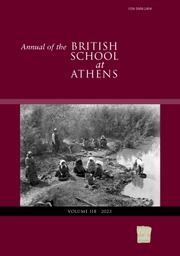No CrossRef data available.
Article contents
A British Officer on Active Service, 1799
Published online by Cambridge University Press: 11 October 2013
Extract
The letters here published were written by Major John Finlay R.E. to his wife during his absence on active service in the Netherlands in 1799 and form part of the Finlay papers preserved with the library of his son George Finlay, the Philhellene and Historian, in the British School at Athens.
John Finlay was the eldest of the numerous family of James Finlay, merchant and manufacturer, of Argyle Street, Glasgow, and of Abigail Wharry his wife. He was born there in 1757 on September 18th, and entered Glasgow University as a student in 1770. Later he adopted the army as his profession and received his commission in the Royal Engineers on May 25th, 1790. He served in the West Indies, and among his papers are some sketches made there and dedicated to his patron the Duke of Richmond, then Master General of the Ordnance, as well as plans for attacking various places held by the enemy in America, including Buenos Ayres.
- Type
- Research Article
- Information
- Copyright
- Copyright © The Council, British School at Athens 1919
References
page 127 note 1 Ninth edition, vol. iv., pp. 284 ff. Cf. History of the Campaign of 1799 in Holland (London, 1801).
page 128 note 1 In this is his account of his journey in Holland in 1788 (May and June) referred to in the second letter below. The passage in his Journal begins:— ‘The Master General of the Ordnance, being desirous of information respecting the posture of defence in which the Maritime Towns of the United Provinces at present are, directed Lieut. Col. Moncrief and I to make a Tour among them and make a Report to Him upon the Subject. Rear-Admiral Sir Charles Douglas, who had extensive Connections in Holland and who meditated a visit to that Country, was requested to accompany us and give us as much assistance as he could with propriety do.’
page 129 note First. Lord of the Admiralty, afterwards Viscount Melville.
page 137 note 1 And so too were Abercrombie and Dundas, on whose influence he relies.




